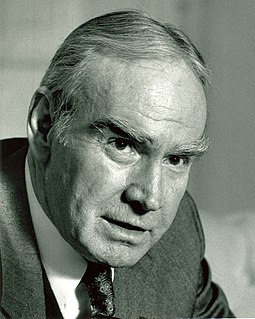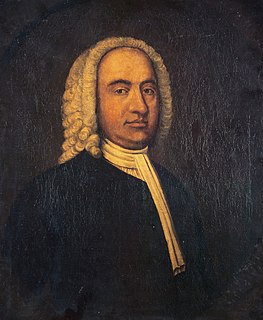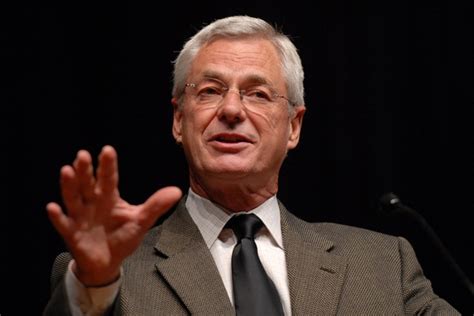A Quote by Reinhold Niebuhr
Self-righteousness is the inevitable fruit of simple moral judgments.
Quote Topics
Related Quotes
Self-righteousness and presumptive moral judgments pose a great danger in the political arena. To become convinced of the divine infallibility of one's personal predilections on a secular political issue is to play God, to assume to oneself the attributes of deity. It cultivates an arrogant intolerance of dissenting viewpoints and relegates one's political adversaries to the category of evil per se.
I think, that a man never passes the verge of moral humility, till self-righteousness be dethroned, till the high and towering imaginations of the man's own righteousness by the law be levelled by the mighty weapons of the gospel, and he brought to submit to the righteousness of God for justification, which is, in the gospel revealed 'from faith to faith.'
He that doth righteousness; that is, righteousness which the gospel calleth so, is righteous; that is, precedent to, or before he doth that righteousness. For he doth not say, he shall make his person righteous by acts of righteousness that he shall do; for then an evil tree may bear good fruit, yea, and make itself good by doing so; but he saith, He that doth righteousness is righteous; as he saith, He that doth righteousness is born of him.
The fruit of humanity is devotion to one's parents. The fruit of righteousness is to respect one's elders. The fruit of wisdom is to understand these two and not to betray them. The fruit of propriety is to regulate and polish them. The fruit of music is the joy that comes from rejoicing in them. When one rejoices in them, they grow. When they grow, how can they be stopped? And when they cannot be stopped, unconsciously one's feet begin to dance and one's arms begin to wave.
True conversion means turning not only from sin but also from depending on self-made righteousness. Those who trust in their own righteousness for conversion hide behind their own good works. This is the reason that self-righteous people are so angry with gospel preachers, because the gospel does not spare those who will not submit to the righteousness of Jesus Christ!
We are all members of the same flawed species. Putting our moral vision into practice means imposing our will on others. The human lust for power and esteem, coupled with its vulnerability to self-deception and self-righteousness, makes that an invitation to a calamity, all the worse when the power is directed at a goal as quixotic as eradicating human self-interest.
On the whole, my respect for my fellow-men, except as one may outweigh a million, is not being increased these days.... Such do not know that like the seed is the fruit, and that, in the moral world, when good seed is planted, good fruit is inevitable, and does not depend on our watering and cultivating; that when you plant, or bury, a hero in his field, a crop of heroes is sure to spring up. This is a seed of such force and vitality, that it does not ask our leave to germinate.
The Constitution exists precisely so that opinions and judgments, including esthetic and moral judgments about art and literature, can be formed, tested, and expressed. What the Constitution says is that these judgments are for the individual to make, not for the Government to decree, even with the mandate or approval of a majority. Technology expands the capacity to choose; and it denies the potential of this revolution if we assume the Government is best positioned to make these choices for us.







































